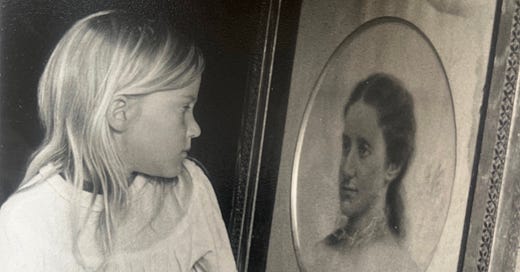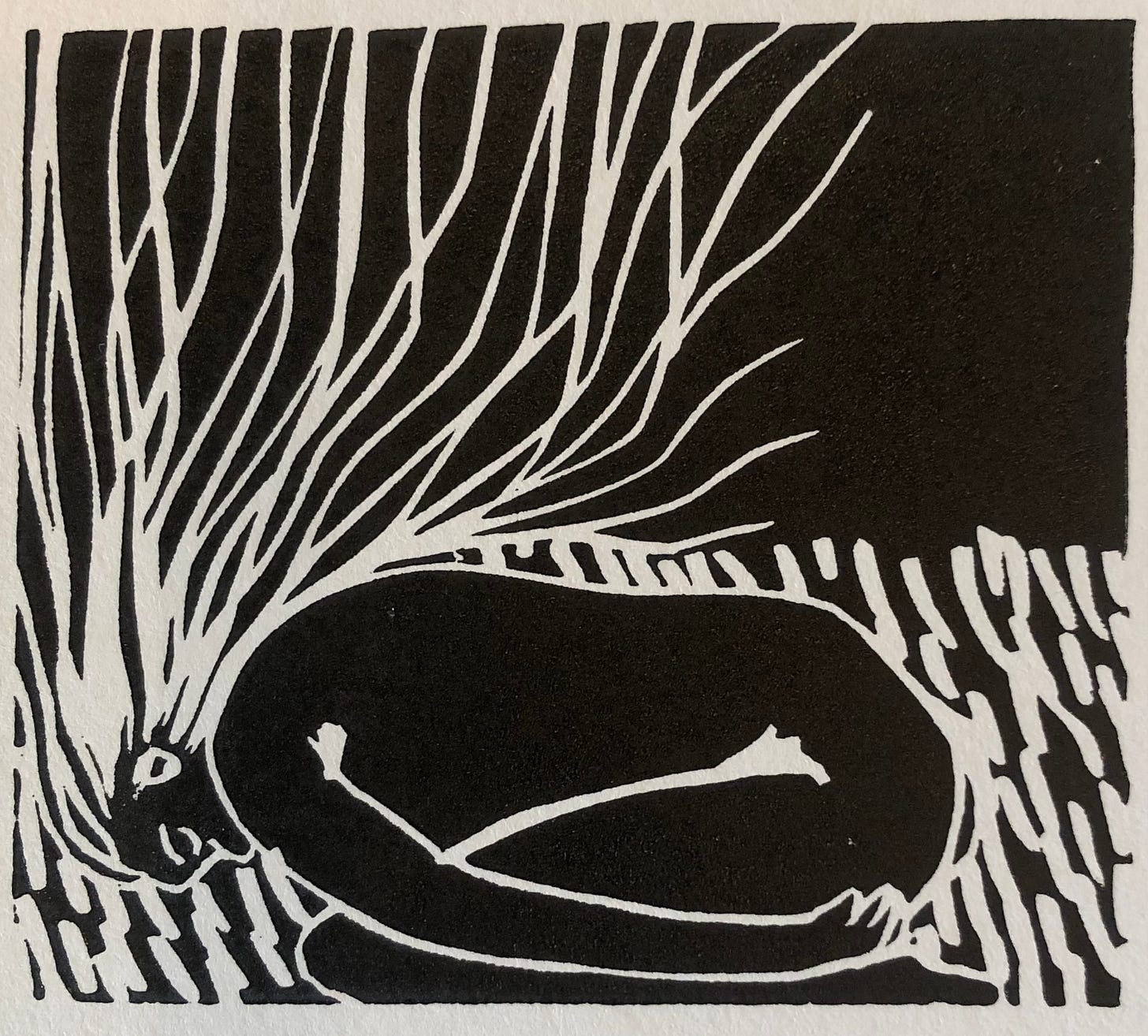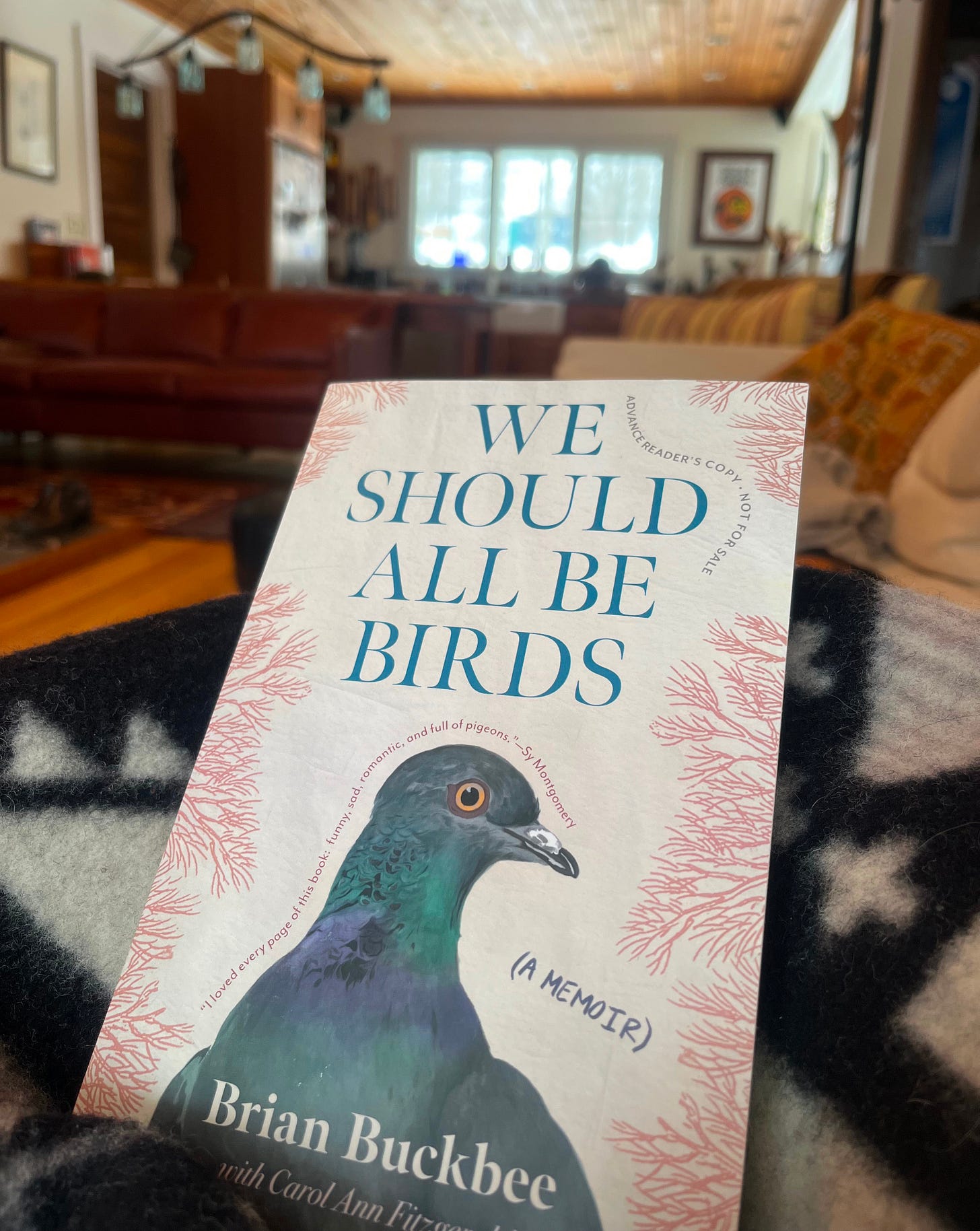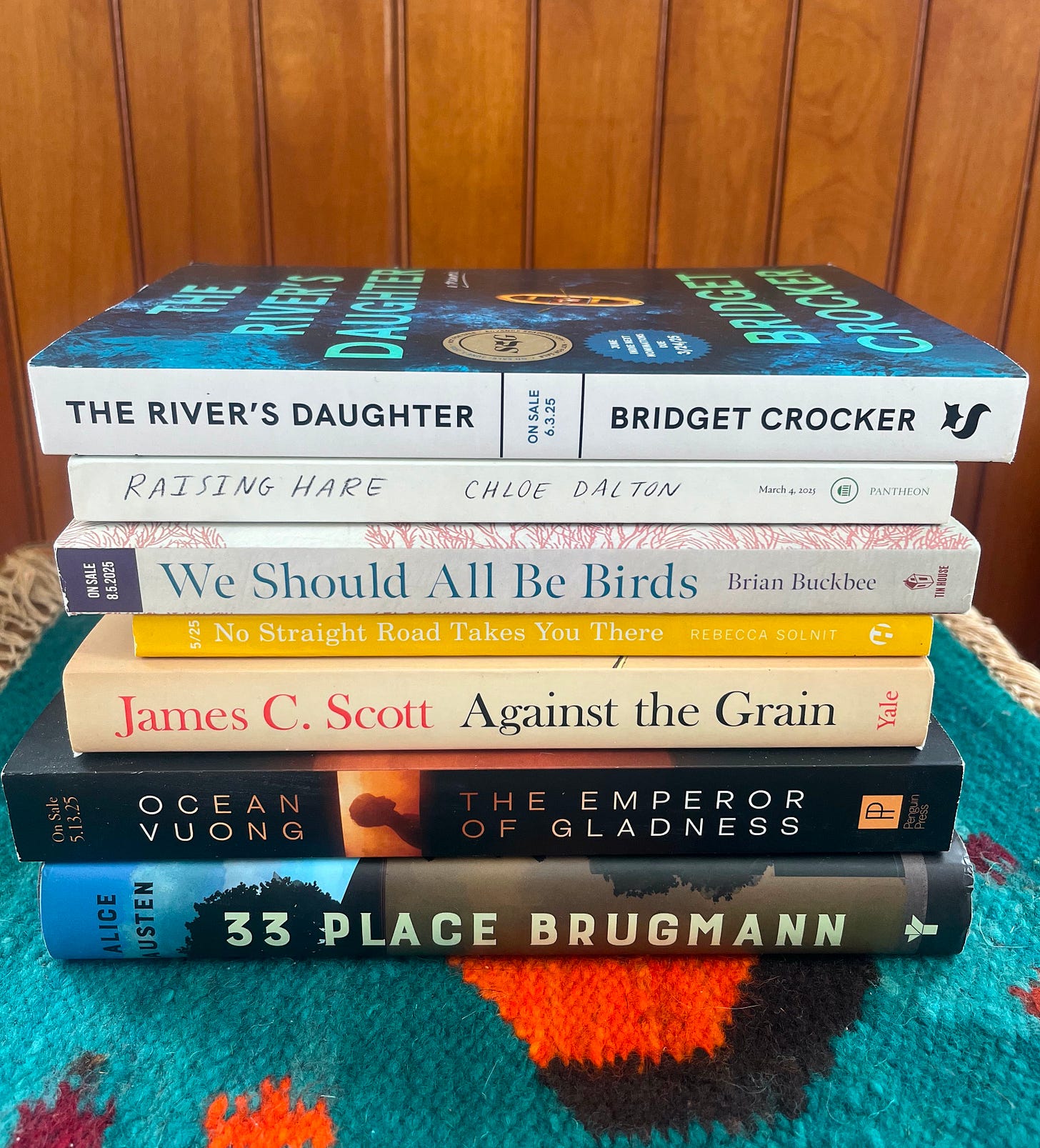These days, it is a radical act to walk into a bookstore or library and browse the offerings and think, What do I want to read? What do I want to learn? A browse is not a scroll. There’s no algorithm. To be moved to pick up a book that speaks to you is a mysterious alchemy of aesthetics and self-knowledge and intuition and yearning. (my mother took this timeless photo of me, age 5.)
Hello dear people,
I feel like I want to start every new post with an apology for not having written for so long, which is true, but the apology part is curious to me. I’m not sure there is any rule on how often one must write to be a writer, and certainly I don’t imagine any of you are thinking, ‘wow, I haven’t heard from Helen in a while’; given that your inboxes and lives and inner selves are overflowing with words, I doubt that you have noticed. Still, I always feel bad when I lapse from my morning routine. So I found it refreshing, stumbling on an interview with Ocean Vuong the other day, to hear one of my heroes say, “writing is a phenomena, an event. I don’t see myself as a writer when I’m not writing.”
I thought about this a long time. I remember once a mentor telling me the opposite: “you are a writer, Helen. Embrace it. Own it.” But I never really have. I think I find Ocean’s statement liberating because I’m wary of fixed identities. I see in others and feel in myself ways in which we carry our identities that doesn’t always serve us, and it’s a relief to put them down when we need to, not as a lack of self-regard but as a kind of freedom. It’s empowering to consciously shed the labels or aspirations or expectations that get in our way of doing that very thing, and instead, just to do it, if and when the time is right.
I think the point is to do the things you’re drawn to in life as fully and authentically as you can, and so much can get in the way of that. Sometimes, with a book coming out, I feel others might look to me as having some kind of greater wisdom or authority on writing or the creative process, and perhaps I do. I’m eager to share what I’ve learned. But taking on the identity of “writer” can feel antithetical to the humility that’s required for true exchange. I told a story only I could tell. But I can’t tell yours.
I farm. I write. I teach. I like to lose myself in any one of those things and have trouble doing more than one at a time. Which makes it good that I live a life that requires me to change my hat by the time of year. The things I am all the time are Friend, Mother, Daughter, Partner, Shepherd. Surely this is enough to hold allegiance to.
Speaking of Ocean Vuong, I had the honor of hearing him speak at Winter Institute in February. Winter Institute is a conference for independent booksellers from all over the country to compare notes, take workshops on how to create a knockout bookstore, hang at the bar and learn about the new books being released for spring. Like Inde Fashion Week for books, only much less stylish, where an ink-stained tote bag is the most coveted accessory.
I spent a lot of time at said bars, trying to describe my book to booksellers over the din. I did get to sit next to Rob Macfarlane in a dive bar where Kerouac and Cassady used to hang out, and ate the same greasy burgers wrapped in paper and slung across the table that they probably ate. Rob and I leaned in close and compared our watersheds, naturally, given the topic of his new book (Is a River Alive?), and the fact that he is the kind of person who can make a conversation about watersheds at a noisy dive bar feel like the most natural thing in the world. I told him about our water temple that protects our spring and where you can sit in a circle inside. He said his spring was “on life support,” barely making a sound anymore. Which was sad.
Ocean, whose new novel comes out soon, was the keynote speaker the following morning. I highly recommend listening to a reading by Ocean. His voice is one of the great voices in literature, to me; so full of pathos and intelligence, vulnerability and strength at the same time. Something about his voice, as much as his message, always makes me want to cry.
At the time of the event, we were about 30 days into the dark sufferfest of this administration, and Ocean talked about bookstores and libraries as “alternative places of learning” and places of refuge, where his mother – who never learned to read or write – had encouraged him to learn. She’d drop him off at the public library and say, “Go in there and read everything.” The book that changed the direction of his life, he said, was Ferlinghetti’s Poetry as Insurgent Art.
He talked about books as a town square where readers can bring their own experience and preferences. I love that. It’s what I like to say, that books are not prescriptive. Books are the doorway to alternative worlds—imaginary ones, to be sure, but also past ones, ones we never new about, that bring perspective to our present. In this sense, books are ultimately democratic: of us, for us. Perhaps more than ever, our democracy and our sanity depends on us reading books now.
We can get to choose what we read. If we read. These days, it is a radical act to walk into a bookstore or library and browse the offerings and think, What do I want to read? What do I want to learn? A browse is not a scroll. There’s no algorithm. To be moved to pick up a book that speaks to you is a mysterious alchemy of aesthetics and self-knowledge and intuition and yearning. The books that have changed my life were all books that spoke to me in an almost mythic way – the right book for the right time - that I cannot explain. (I write about one such experience in The Salt Stones.)
One of the other wonderful things about Winter Institute and being back among book people was that I came home loaded down with advance reading copies (ARCs in trade lingo) of books that are now at the printer and will land in stores this spring. I got a sneak preview! Which I now want to share with you. Late March in Vermont means a mess of mud outside my window, with wet snow falling on the mud, a flock of pregnant ewes picking their feet up high as they slosh to the water tank, bellies sagging with the weight of lambs who are soon to be born into this inhospitable world. It means sleepless nights for shepherds, and so I have been reading through my stack at record pace.
Here are some special books to look out for this spring:
We Should All be Birds, Brian Buckbee (July)
An incredibly touching, heartbreaking book about a man who is in chronic pain who rescues a pigeon with an injured leg. The experience sets him on the path of taking in more injured birds and they become his family during a time of extreme isolation brought on by the pandemic, his illness and the sudden departure of the love of his life, a woman he calls L. I read this book in one long night when I could not sleep because of a headache and a horrible cough. It was terrifying to read a book about someone with constant migraines while feeling ill, a feeling I haven’t had since I was in college, when during an especially intense semester I felt my mind come unhinged while reading Dostoevsky’s Notes from Underground. This is a testament to the power of Buckbee’s writing (which was actually dictated because his headaches make it impossible for him to read or write) in that it feels entirely embodied, utterly personal. The most vulnerable and honest book I’ve read in a long time.
The River’s Daughter, Bridget Crocker (June)
This is a memoir I want to give to all the beloved young women in my life who are yearning to make sense of the ways that patriarchy and family shape who we are as women even as we resist their control. Bridget’s story about growing up in a broken family and finding her freedom and power as a river guide on some of the fiercest rivers in the world reads much like a novel, rich in dialog and in scenes of risk and wounding as well as wonder.
The Emperor of Gladness, Ocean Vuong (May)
I’m only part way into this one, but it’s mesmerizing. Slightly ominous while also being tender. It’s hard to say it better than the publisher: “Following the cycles of history, memory, and time, The Emperor of Gladness shows the profound ways in which love, labor, and loneliness form the bedrock of American life. At its heart is a brave epic about what it means to exist on the fringes of society and to reckon with the wounds that haunt our collective soul. Hallmarks of Ocean Vuong’s writing—formal innovation, syntactic dexterity, and the ability to twin grit with grace through tenderness—are on full display in this story of loss, hope, and how far we would go to possess one of life’s most fleeting mercies: a second chance.”
I’m very excited about these as well:
Is a River Alive?, Robert Macfarlane (in my mind, anything he writes is pure magic; this one on the sentience of rivers.)
33 Place Brugman, Alice Austen (a historical novel about a community in Brussels on the eve of the Nazi occupation.)
No Straight Road Takes You There, Rebecca Solnit (essays in the Hope in the Dark vein)
Raising Hare, Chloe Dalton (an English woman adopts a wild hare during the pandemic)
Against the Grain, James C. Scott (an older book, recommended by Rob Macfarlane. About early agrarian societies and how/why humans evolved to be farmers.)
Happy reading and happy spring, you all. Love ya,
Helen








Thanks, Erik. You know i"m probably out with the sheep. :)
So well-said, Helen. The tension of writing/not writing has been on my mind a lot. (And FWIW, I DO wonder what you're up to when you haven't shown up in my inbox for a while.)